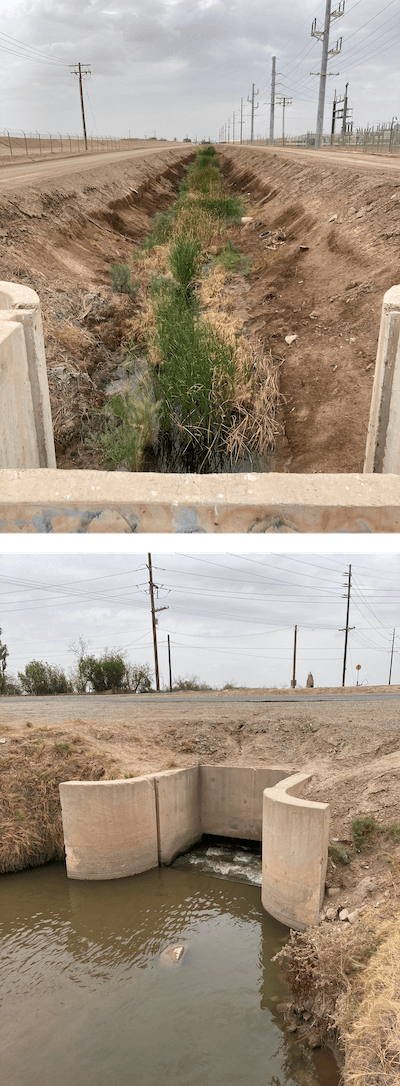 The City of El Centro (City), as a permittee of the State Water Board's Municipal Separate Storm Sewer Systems (MS4) permit, is required by the State Water Board to comply with stormwater trash provisions. The goal of these provisions is that trash shall not be present in ocean waters, along shorelines or adjacent areas in amounts that adversely affect beneficial uses or cause nuisance. These trash reduction strategies are grouped into two compliance options; Track 1, which refers to Certified Full Capture Systems (FCS), and Track 2, which refers to any combination of structural, institutional, or non-institutional controls of trash.
The City of El Centro (City), as a permittee of the State Water Board's Municipal Separate Storm Sewer Systems (MS4) permit, is required by the State Water Board to comply with stormwater trash provisions. The goal of these provisions is that trash shall not be present in ocean waters, along shorelines or adjacent areas in amounts that adversely affect beneficial uses or cause nuisance. These trash reduction strategies are grouped into two compliance options; Track 1, which refers to Certified Full Capture Systems (FCS), and Track 2, which refers to any combination of structural, institutional, or non-institutional controls of trash.
The City selected the Track 1 compliance method as the preferred means to comply with the Board’s Trash Amendment Resolution. As such, the City will install, operate and maintain State-Certified Full Capture Systems (FCS) for capturing trash from storm drain pipes and drains from Priority Land Uses such as commercial, industrial and high density residential uses. A trash FCS is defined as a single device (or a series of devices) that traps all particles that are 5 mm or greater, and has a treatment capacity that is either not less than the peak flow rate resulting from a one-year, one-hour storm in the subdrainage area, or appropriately sized to carry at least the same flow as the corresponding storm drain.
The design of the FCS will be based on the use of Continuous Deflective Separator (CDS) units at storm drain outfalls and drain inlet filters for catch basins and grate inlets. CDS units capture a very wide range of organic and in-organic solids and pollutants such as total suspended solids (TSS) and other sedimentitious materials, oils and greases, trash, and other debris, including floatables, neutrally buoyant, and negatively buoyant debris. The CDS unit is a non-mechanical self-operating system that functions any time that there is flow in the storm drainage system.
LEE + RO’s scope of services includes project management, performing site investigations with the City, attending design review meetings, preparing a preliminary technical memorandum complete with assessments and recommendations that will serve as the basis of design for preparing 60% design documents followed by final bid documents (plans, specs and estimates).



